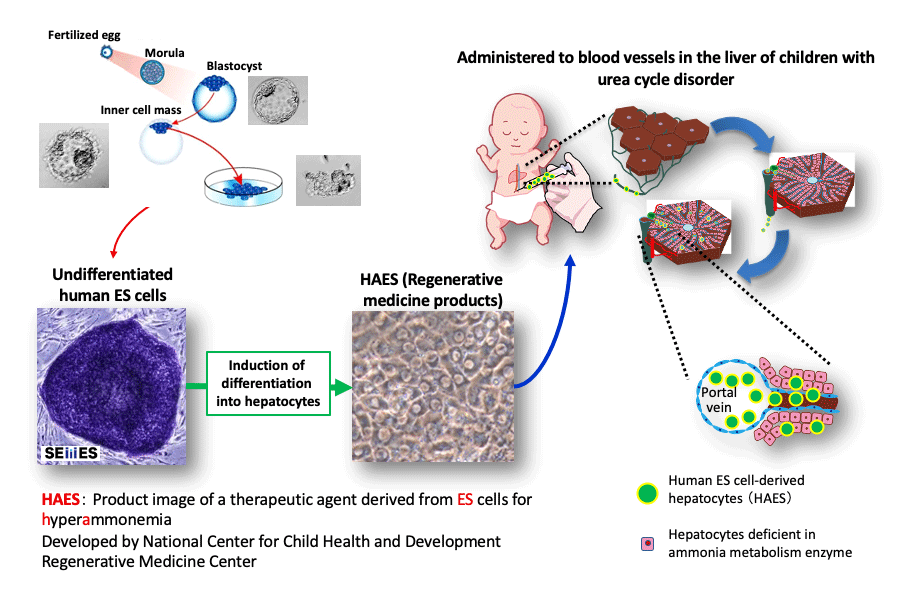In a new clinical trial, a six-day-old baby in Japan has received the world’s first successful transplant of new liver cells derived from embryonic stem cells. The “bridge treatment” kept the infant healthy until old enough to receive a liver transplant, demonstrating a breakthrough for treating certain life-threatening conditions.
The baby suffered from urea cycle disorder, a relatively rare genetic condition where the liver is missing an enzyme crucial for breaking nitrogen down into urea, which can then be expelled in urine. Without it, ammonia builds up in the bloodstream, with potentially deadly results.
Normally a liver transplant is required, but this can’t be done until between three and five months of age. And, unfortunately, by then it may be too late.

NCCHD
So in the new clinical trial, scientists at Japan’s National Center for Child Health and Development (NCCHD) conducted a transplant of liver cells called hepatocytes. A stable supply of these cells is usually hard to come by, but in this case the team grew them from embryonic stem cells.
The hepatocytes were then injected into the blood vessels in the patient’s liver. Afterwards, there was no increase in their blood ammonia concentration, and when the time came the team was able to successfully administer a whole liver transplantation. The researchers report that no complications arose.
This marks several firsts. It’s the first clinical trial in the world to treat a liver disease using transplanted hepatocytes, and it’s the first time that embryonic stem cells have been used in humans in Japan. The researchers say that they were able to verify the safety and efficacy of the technique in humans.
The team says that this kind of “bridge treatment” could help keep other affected newborns healthy long enough to undergo liver transplantation.
Source: NCCHD
Source of Article